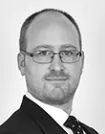In an ongoing dispute between Ericsson and TCL in the Central District of California over patents allegedly essential to a European Telecommunications Standards Institute ("ETSI") standard, TCL retained two testifying experts to analyze the entire universe of patents declared essential to ETSI—over 170,000 of them—for certain basic information, as well as an analysis of how many of them are actually essential. Given the gargantuan task, TCL hired two consulting firms in India—an Ernst & Young group and Concur IP—with the U.S.-based testifying experts overseeing the work of the Indian teams. Each team had a leader in India, and Ericsson sought to depose those Indian team leaders.1
Overruling the magistrate judge, the district judge granted Ericsson's request to depose the team leaders in India. The court concluded that Ericsson did not have sufficient opportunity to cross-examine the evidence through the testifying experts alone. The district judge found, based on the experts' deposition testimony, that they did "not appear to have personal knowledge of how their instructions were interpreted" by the teams in India, who "may have had idiosyncratic views of how to interpret the instructions, methodologies, protocols, and other direction of the testifying experts" when performing the "highly complex task" of patent analysis.2 It apparently was not enough for the court that the experts had provided instructions, gone through examples with the Indian teams, talked by phone regularly, handled issues that were elevated to them, and performed a second review of some of the work to confirm adherence to the instructions.3
The district and magistrate judges also disagreed on the proper standard to be applied. Generally, non-testifying experts cannot be deposed except in "exceptional circumstances under which it is impracticable for the party to obtain facts or opinions on the same subject by other means," and this is the standard that the magistrate judge applied.4 The district judge ruled that this safe harbor did not apply where the non-testifying expert's work "went directly into the testifying expert's report;" in that case, deposition is "an appropriate means of testing the reliability of the report."5
While this order is not binding precedent, it does provide a few practice pointers for parties looking to outsource some of their experts' substantive work—which, in standard-essential and other large-volume patent cases, may be necessary. First, make sure the protocols include some way for testifying experts to confirm that their instructions are being followed correctly on a regular basis. Any room for interpretation or discretion by the subordinates could be problematic. Second, make sure the testifying experts are well-prepared to discuss their consultants' work at their own depositions, including seemingly mundane details like the amount of time the teams spent by their teams on various tasks. And, third, because of their possible depositions, evaluate the senior consultants' suitability for deposition before hiring them.
Parties should also take care to draw clear lines between true consulting experts, who provide their work to counsel only, and experts who will contribute to a testifying expert's opinions. In principle, a non-testifying expert's work may be provided by counsel to a testifying expert to be taken as an assumption underlying the expert's work. This strategy, where applicable, should provide some comfort that the non-testifying expert will not be deposed or cross-examined; but, on the other hand, the fact finder may be less persuaded by opinions based on counsel's assumptions (if not well-proven) than opinions based on another expert's work.
Footnotes
1 (In Chambers) Order Denying Ericsson's Motion to Strike Expert Testimony Based on Work Performed by TCL's Consultants ("Magistrate Judge's order") at 1–3, TCL Commc'n Tech. Holdings, Ltd. v. Telefonaktiebolaget LM Ericsson, No. SA CV 14-00341-JVS (DFMx) (C.D. Cal. May 31, 2016).
2 (In Chambers) Order Granting Defendants' Motion for Review of Magistrate Judge's May 31, 2016 Order ("District Judge's order") at 6–7, TCL Commc'n Tech. Holdings, Ltd. v. Telefonaktiebolaget LM Ericsson, No. SA CV 14-00341-JVS (DFMx) (C.D. Cal. July 7, 2016).
3 See Magistrate Judge's order at 2–3.
4 Id. at 3 (quoting Fed. R. Civ. P. 26(b)(4)(D)).
5 District Judge's order at 7, 8.
The content of this article is intended to provide a general guide to the subject matter. Specialist advice should be sought about your specific circumstances.






